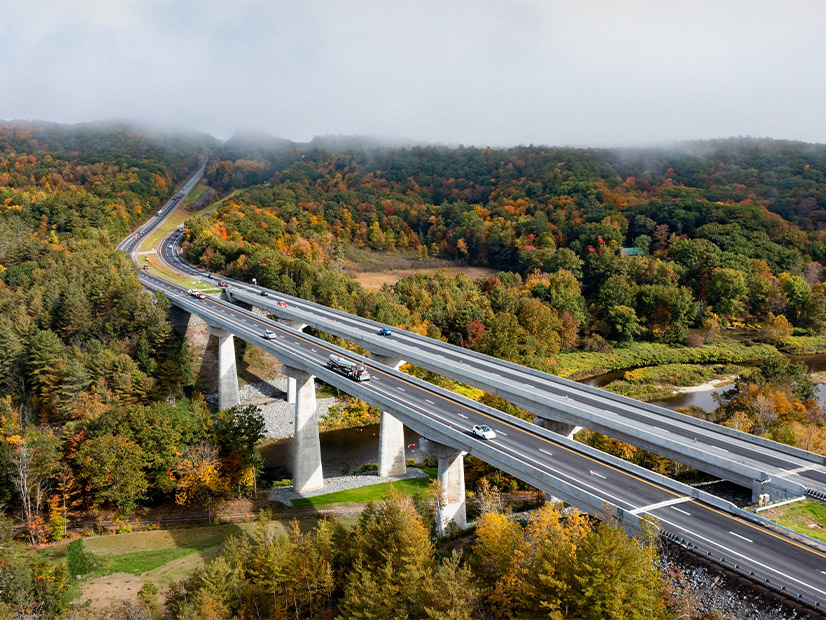
The Vermont Climate Council is planning to extend its original timeline to find a replacement for the Transportation and Climate Initiative Program in the state’s interim Climate Action Plan.
An alternative to the proposed multistate cap-and-invest program is needed to fill a 26% gap in the emission-reducing actions of the council’s interim plan, released Dec. 1. The council expected to recommend Vermont join TCI-P, but it changed course in November after Connecticut, Massachusetts and Rhode Island said they no longer planned to implement the program.
The abrupt turnaround forced the council to release its plan with a promise to further study transportation emissions-reducing options and recommend a final course of action by June.
A task group in charge of that study told the full council on Monday that it plans to extend the June deadline to November. The council did not oppose the new timeline.
“We need a little bit more time to begin to really lay out the characteristics and potential benefits and ramifications of different approaches,” said Council Member Johanna Miller, energy and climate program director for the Vermont Natural Resources Council.
“Most of our recommendations are likely going to require some legislative support,” she said.
The Vermont legislature adjourns in May, so legislators would not take up any transportation sector recommendations made in June until they reconvene in January 2023. Delaying until November, Miller said, will give the task group more time for analysis and public engagement while ensuring they give policymakers time to draft potential legislation.
Initial study by the group will focus on understanding the framework for joining the Western Climate Initiative and the possibility of creating a Vermont-only Clean Transportation Standard. (See Without TCI-P, Vt. Will Explore Joining Western Climate Initiative.)
Biomass Actions
Members of another task group in charge of finding a resolution to outstanding issues related to biomass in the climate plan said Monday that they may seek a similar deadline extension for their work.
Before adopting its interim plan, the council chose to table proposed actions on biomass for further study, with a plan to release final recommendations in June.
Biomass is a “complicated topic,” said Council Member Richard Cowart, a principal at the Regulatory Assistance Project. “It has multiple arms and legs to it, and I think it’s going to take [the task group] some time to work through the issues.”
The group has met already to identify its study scope, but the topic intersects with other climate plan segments that the council has adopted already, according to Billy Coster, co-chair of the Agriculture and Ecosystems Subcommittee and director of natural resources planning at the Vermont Agency of Natural Resources.
“Trying to understand exactly where those intersects exist and how far the council would like us to go down those paths is important,” Coster said.
Central to the task group’s work will be reconsidering the preliminary biomass actions that the subcommittee presented to the full council and that the council agreed to table. Those actions called for identifying how biomass for thermal heat generation can support the transition away from fossil-fuel heating without having a net effect on Vermont forests. They also included a prohibition on expanding or building large-scale electric generation biomass facilities in the state.
The subcommittee recommended that any policy or regulation for biomass account for all greenhouse gas emissions associated with fuel production, such as extraction and transportation, in-state or out-of-state. Vermont currently relies on an in-state, sector-based GHG inventory for tracking emissions, but a supplemental analysis of lifecycle emissions related to energy use is in the works, according to Council Member Jared Duval, executive director of the Energy Action Network.
When discussing the nuanced issues related to biomass, Duval said, council members must rely on the “latest and highest quality available science and analysis.”


